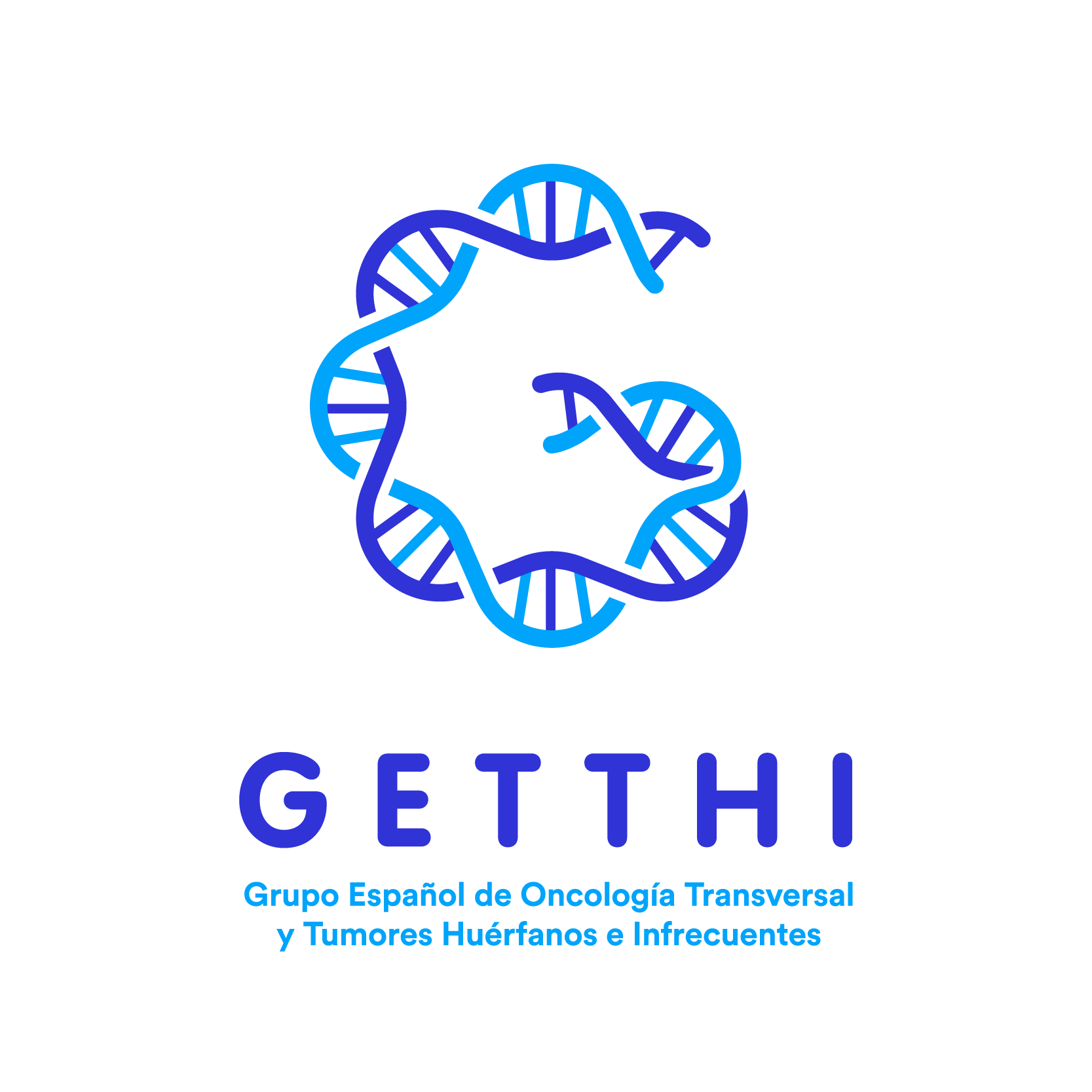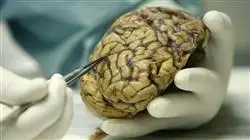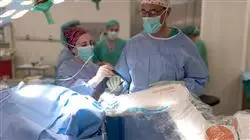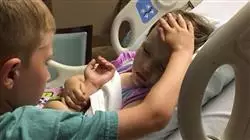University certificate
Scientific endorser

The world's largest faculty of medicine”
Description
Improve your knowledge in Pediatric Brain Tumor Management through this scientific program, where you will find the best didactic material with real clinical cases. Learn here about the latest advances in the specialty to be able to provide quality medical care"

This postgraduate diploma presents an overview of the current state of the field, highlighting the most recent key advances that will influence clinical management.
As a summary we will see how the histological heterogeneity of glioblastoma makes total eradication impossible, because residual cancer cells invade the parenchyma, which remains invisible to any radiographic technique. Even with macroscopic total resection, the heterogeneity and latent nature of tumor cells allows therapeutic evasion, which contributes to tumor recurrence and progression, and severely affects survival. Visual delineation of tumor margins with common surgical techniques has been a challenge faced by many surgeons, and in an attempt to achieve safe and optimal resection, advances have been developed and implemented that allow intraoperative analysis of cancerous and non-cancerous tissue, which has already led to improved outcomes. In addition, functional paradigms based on stimulation techniques to map brain electrical activity have optimized glioma resection in eloquent areas such as Broca's, Wernike's and perirhinal areas
In this way, we analyze the diagnostic and therapeutic management of both primary and metastatic brain tumors. We will discuss current technologies used for the resection of gliomas, such as awake craniotomy, fluorescence-guided surgery, neuronavigation, neuroendoscopy, among many others
Another advance that will be widely seen comes from the field of genomics whose advances have made it possible to learn that more than half of pediatric brain tumors have genetic abnormalities that could help in diagnosis or treatment, which is reflected in the recent decision of the World Health Organization to classify such tumors by genetic alterations, rather than by tumor type. Therefore, precision medicine for pediatric brain tumors is now a reality, and possibly in the near future also for adult brain tumors
Update your knowledge through the postgraduate diploma in Pediatric Brain Tumor Management”
This postgraduate diploma in Pediatric Brain Tumor Management contains the most complete and up-to-date scientific program on the market. The most important features include:
- More than 75 clinical cases presented by experts in Pediatric Brain Tumor Management
- The graphic, schematic, and practical contents with which they are created provide scientific and practical information on the disciplines that are essential for professional practice
- Diagnostic-therapeutic developments on assessment, diagnosis, and treatment in Pediatric Brain Tumor Management. It contains practical exercises where the self-assessment process can be carried out to improve learning
- Iconography of clinical and diagnostic imaging tests
- An algorithm-based interactive learning system for decision-making in the clinical situations presented throughout the course
- With special emphasis on evidence-based medicine and research methodologies in Pediatric Brain Tumor Management
- All of this will be complemented by theoretical lessons, questions to the expert, debate forums on controversial topics, and individual reflection assignments
- Content that is accessible from any fixed or portable device with an Internet connection
This postgraduate diploma may be the best investment you can make when selecting a refresher program, for two reasons: in addition to updating your knowledge of Pediatric Brain Tumor Management, you will obtain a qualification from TECH”
Its teaching staff includes professionals from the field of Pediatric Brain Tumor Management, who bring the experience of their work to this training, as well as renowned specialists belonging to leading scientific societies.
Thanks to its multimedia content developed with the latest educational technology, they will allow the professional a situated and contextual learning, that is to say, a simulated environment that will provide an immersive learning programmed to prepare in real situations.
This program is designed around Problem-Based Learning, where students must try to solve the different professional practice situations that arise during this educational course. For this purpose, the physician will be assisted by an innovative interactive video system created by renowned and experienced experts in the field of Pediatric Brain Tumor Management with extensive teaching experience.
Increase your decision-making confidence by updating your knowledge with this postgraduate diploma”

Take the opportunity to learn about the latest advances in Pediatric Brain Tumor Management and improve patient care”
Objectives
The program in Pediatric Brain Tumor Management is aimed at facilitating physician performance in treating neurological oncological pathologies.

This program is designed for you to update your knowledge of Pediatric Brain Tumor Management, with the use of the latest educational technology, to contribute quality and safety to decision making, diagnosis, treatment and patient support”
General Objective
- Create a global and updated vision of the management of brain tumors in pediatrics and all its aspects, allowing students to acquire useful knowledge while they generate interest in expanding the information and discovering its application in their daily practice.
Specific Objectives
Module 1. Brain Tumors Biology
- Update knowledge in the molecular biology of cancer, especially in relation to the concept of genetic heterogeneity, reprogramming of the microenvironment in neurological tumors and the role of the immune response in cancer control
- Provide and expand knowledge on immunotherapy, as an example of a clear scientific advance in translational research, and one of the most promising lines of research in cancer treatment
- Learn how advances in the molecular biology of brain tumors have been incorporated into anatomopathological diagnosis, many of them as a result of extensive genetic research on the origin of these neoplasms, their behavior according to the molecular pattern expressed and the therapeutic viability of attacking certain mutations with new chemotherapies
- Learn about the new World Health Organization (WHO) Classification of Primary Tumors of the Central Nervous System, which for the first time incorporates the need for molecular biology markers for the correct classification of astrocytic, oligodendroglial and medulloblastoma tumors
- Describe the utility of liquid biopsy, focused on the genomic analysis of circulating tumor DNA, for a more adequate diagnosis of brain gliomas, enabling their classification
Module 2. Radiology in the Management of Brain Tumors
- Delve into the new magnetic resonance techniques in neuro-oncology
- Manage the most recent developments in computed tomography for the management of neuro-oncological complications
- Value the role of nuclear medicine in the diagnosis of neuro-oncologic complications
- Analyze the different types of primary tumors of the central nervous system
Module 3. Pediatric Brain Tumors and Neuroncologic Complications
- Delve into the preoperative management and current considerations in pediatric brain tumor surgery
- Know the main neuro-oncological complications in children with systemic cancer

This postgraduate diploma is the best way to get up to speed on the Pediatric Brain Tumor Management”
Postgraduate Diploma in Management of Pediatric Brain Tumors.
The management of pediatric brain tumors is a very complex and multidisciplinary process that involves a team of specialists, including neurosurgeons, oncologists, radiologists, pathologists, and other health professionals such as nurses, therapists, social workers and psychologists.
Upon completion of this training, you will get an update on the Management of Pediatric Brain Tumors.
Treatment for brain tumors in children is based on many factors, such as the patient's age, type, size, location and aggressiveness of the tumor. In addition, physicians may take into account the child's general health and the side effects of treatment. Pediatric brain tumor management also focuses on the emotional well-being of the child and family. Health care professionals can provide emotional and psychological support, as well as information and resources to help the family understand the child's diagnosis and treatment.
Ongoing follow-up and monitoring of treatment progress is important in the management of brain tumors in children. Physicians should perform follow-up examinations and imaging tests to determine any changes in the size or location of the tumor and adjust treatment accordingly. Follow-up also includes monitoring the side effects of treatment and frequent assessment of the emotional and psychological well-being of the child and his or her family.
TECH the world's largest digital university has this specialized academic program designed to train professionals in the management and treatment of brain tumors in children, as well as understanding the implications and effects these can have on patients and their families. This program is aimed at healthcare professionals interested in the field of pediatric brain tumors.







